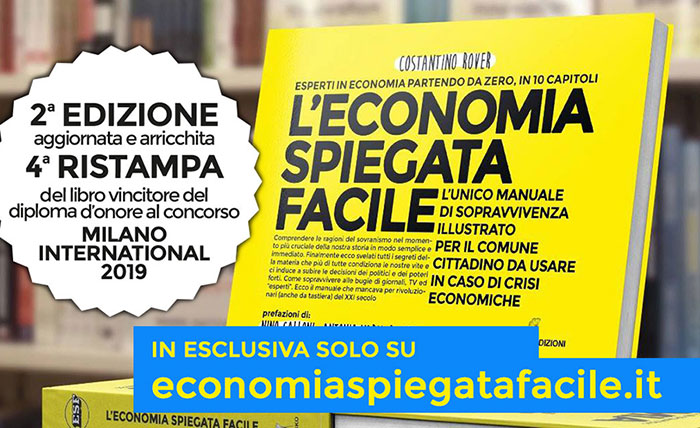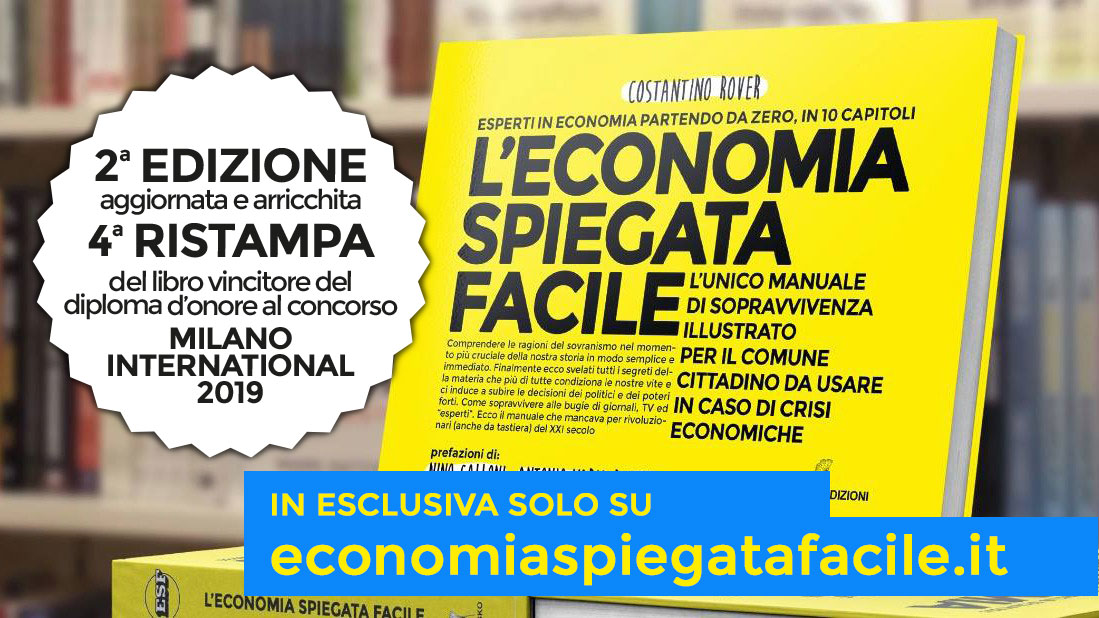Superbonus, Blockchain and tax credits, why don’t we talk about them?

Why is there so little talk about the interest that the state should have in the blockchain ?
In some past articles , which you find in the XXI century section of the easy explained economy blog, we have mentioned the opportunity and need for the State to occupy the space created by the blockchain with mastery of means and authority.
By space we mean space for maneuver in the midst of the IT giants and beyond, which are directing not only finance and consequently the economy, but also democracies towards territories that risk becoming their monopoly.
Faced with such an abstract theme, as it may seem to those who do not chew on it, we have the duty to descend on the soil of concrete daily life.
In short, that it is only the prerogative of the upper echelons, but also of ordinary citizens. Soon we will all be conditioned by it, as has happened in recent decades in matters of the market, the economy and money.
The hope of this blog is that we start talking about it in real and simple terms. And that access to the blockchain theme be made public .
Andrea Bianconi, an expert in the sector, contacted us to have the space necessary to formulate his proposal which in other areas had been semi-censored.
Easy explained economy proposes it in full version.
Superbonus, Blockchain and tokenization of tax credits,
the great opportunity for Italy that is not mentioned
by Andrea Bianconi – (c) www.bianconiandrea.com – 2020
The day Italy reopened its borders after the lockdown – June 3 – I crossed the Brenner with overwhelming joy.
I was finally able to rejoin my family and old friends.
I was able to fill my heart and eyes again with the beauty of my homeland.
Since that day I have spent most of the summer in Italy, enjoying the unique beauties of the Dolomites, Lake Garda, my Umbria, Marche, Abruzzo and down to the Gargano in Puglia.
Blockchain this semi-unknown
I became obsessed with the idea of returning to live in my beloved land and started looking at the incentives that the government was planning. The recent Law n.34 of 2020 – known as the “Relaunch Decree” – grants tax incentives for the renovation of properties.
The aim is to improve both the energy consumption of buildings and their structural stability.
If the government's goal is to revive both the construction sector and the country's stagnant economy, this new law hides even more important opportunities for the country's economy. Just look for them.
I am surprised that no one has yet proposed or highlighted such opportunities. Unfortunately, the blockchain remains a topic that is only discussed by a small circle of specialists. Yet digitization should be one of the stated priorities of the current government.
The Italian company Fintech Workinvoice is launching a market for the negotiation of tax credits that will be granted by the Italian government under the new law.
Great idea but outdated format.
A question of trust
The critical question is once again the "trust": how to ensure that the credits are (i) original, (ii) unique and (iii) unspent by a seller multiple times with several unwitting buyers?
A system based on the control of credits by auditors will be subject to inevitable scams, through the fraudulent duplication of credits and / or their resale several times.
It is also extremely expensive, because the auditors' work must be paid handsomely. It is slow because controls take time and it is also unnecessarily complex due to the need to have different actors involved in both the management and supervision of the system.
I'm really surprised that no one said "let's use the blockchain". This is precisely why the blockchain exists. Bitcoin has ingeniously solved the problem of duplication of digital values and made trust obsolete, i.e. the need to have someone super partes to trust.
Now the Italian government has the rare opportunity to use the blockchain to successfully implement this project and create important synergies for the benefit of the country's economy.
The blockchain-based tax credit circulation system proposed below can be applied in principle to any state and to any type of credit, incentive, subsidy or value in general, which are given by governments to their citizens / businesses.
WHAT ECONOMY IS WAITING FOR US IN THE FUTURE?

BUY IT NOW

Thanks to our Telegram channel you can stay updated on the publication of new articles of Economic Scenarios.
The Superbonus article , Blockchain and tax credits, why not talk about it? comes from ScenariEconomici.it .
This is a machine translation of a post published on Scenari Economici at the URL https://scenarieconomici.it/superbonus-blockchain-e-crediti-dimposta-perche-non-se-ne-parla/ on Tue, 10 Nov 2020 07:05:12 +0000.

